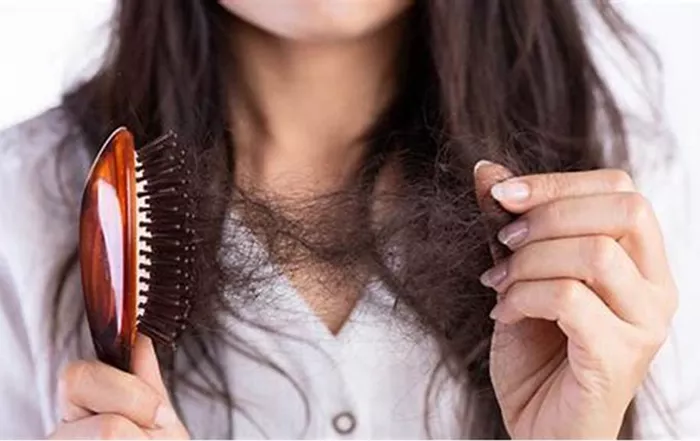Pool water is a common concern for many individuals who enjoy swimming but worry about its effects on their hair. Chlorine and other chemicals used in swimming pools are often cited as potential culprits for hair damage and loss. This article will delve into the relationship between pool water and hair loss, explore the effects of chlorine on hair health, and provide practical advice on how to protect your hair while enjoying the pool.
Understanding Pool Water and Hair Health
The Composition of Pool Water
Chlorine in Pool Water
Chlorine is the primary chemical used in swimming pools to keep the water clean and free of harmful bacteria. While effective at disinfecting, chlorine can have side effects on hair and skin. It works by breaking down organic material, including hair proteins, which can lead to hair damage and dryness.
Other Chemicals in Pool Water
In addition to chlorine, pools often contain other chemicals like bromine, algaecides, and pH balancers. These chemicals can also affect hair health, though chlorine is typically the most significant concern.
How Chlorine Affects Hair
Impact on Hair Structure
Chlorine can alter the structure of hair by stripping away natural oils that protect and moisturize the strands. This can leave hair feeling dry, brittle, and prone to breakage. The chemical can also weaken the hair shaft, making it more susceptible to damage and split ends.
Color Changes
For those with color-treated hair, chlorine can cause the color to fade more quickly. The chemical reactions can strip away hair dye, leading to a dull or uneven appearance.
The Connection Between Chlorine and Hair Loss
How Chlorine Might Contribute to Hair Loss
Dryness and Breakage
While chlorine itself doesn’t directly cause hair loss, the dryness and breakage it can induce might lead to increased shedding. When hair becomes excessively dry and brittle, it is more likely to break off, giving the appearance of hair loss.
Scalp Health
Chlorine can also affect the scalp, potentially causing irritation or dryness. A healthy scalp is crucial for hair growth, so any damage or discomfort can impact hair health.
Myth vs. Fact: Does Chlorine Cause Hair Loss?
Scientific Evidence
There is limited scientific evidence directly linking chlorine exposure to hair loss. Most research suggests that while chlorine can damage hair and lead to breakage, it does not cause permanent hair loss. Hair loss associated with chlorine is typically related to damage and breakage rather than a direct effect on hair follicles.
Hair Loss vs. Hair Damage
It’s essential to differentiate between hair loss due to follicle damage (such as from hormonal or genetic causes) and hair breakage due to external factors like chlorine exposure. Chlorine typically contributes to hair breakage rather than actual hair loss from the scalp.
See also: The Big 3 to Prevent Hair Loss
How to Protect Your Hair from Pool Water Damage
Pre-Swimming Protection
Wet Your Hair
Before swimming, wet your hair with clean water. This helps reduce the amount of chlorine your hair can absorb. The clean water acts as a barrier, minimizing the damage caused by chlorine.
Apply Leave-In Conditioner
Applying a leave-in conditioner or a protective hair oil before swimming can help create a barrier between your hair and chlorine. These products can help retain moisture and reduce the drying effects of chlorine.
Wear a Swim Cap
Although not always comfortable, wearing a swim cap can provide a physical barrier to reduce chlorine exposure. A well-fitting swim cap can help protect your hair, though it may not keep all water out.
Post-Swimming Care
Rinse Your Hair Thoroughly
After swimming, rinse your hair with fresh water as soon as possible to remove chlorine. The sooner you rinse your hair, the less time chlorine has to cause damage.
Use a Clarifying Shampoo
Clarifying shampoos are designed to remove chlorine and other impurities from your hair. Use a clarifying shampoo occasionally to keep your hair clean, but avoid overuse as it can strip natural oils and cause further dryness.
Condition and Moisturize
After shampooing, apply a deep conditioning treatment to replenish lost moisture and repair any damage. Look for conditioners that contain nourishing ingredients like proteins, vitamins, and oils to restore hair health.
Addressing Concerns About Hair Loss
When to Seek Professional Advice
Persistent Hair Loss
If you experience significant or persistent hair loss, it may be due to other underlying causes rather than chlorine exposure alone. Conditions such as hormonal imbalances, nutritional deficiencies, or genetic factors can contribute to hair loss.
Consulting a Dermatologist
A dermatologist or trichologist can help diagnose the cause of hair loss and recommend appropriate treatments. If you suspect that pool water or other external factors are contributing to hair issues, a professional can provide personalized advice and solutions.
Hair Care and Maintenance Tips
Maintain a Balanced Diet
A balanced diet rich in vitamins and minerals supports overall hair health. Ensure you’re getting adequate nutrients such as biotin, iron, and vitamins A and C, which are essential for healthy hair growth.
Practice Good Hair Hygiene
Regularly wash and condition your hair to maintain cleanliness and prevent buildup. Avoid excessive heat styling and harsh treatments that can exacerbate hair damage.
Stay Hydrated
Drinking plenty of water helps keep your hair hydrated from the inside out. Proper hydration is essential for maintaining healthy hair and preventing dryness.
Conclusion
Losing hair due to pool water exposure is generally a matter of hair damage rather than true hair loss. Chlorine can cause dryness, brittleness, and breakage, but it does not typically lead to permanent hair loss from the scalp. By taking preventive measures such as wetting your hair before swimming, using protective products, and practicing good post-swimming hair care, you can minimize the impact of pool water on your hair.
If you experience significant hair loss or persistent issues, it’s important to consult with a healthcare professional to determine the underlying cause and receive appropriate treatment. With the right care and precautions, you can enjoy swimming while keeping your hair healthy and vibrant.


